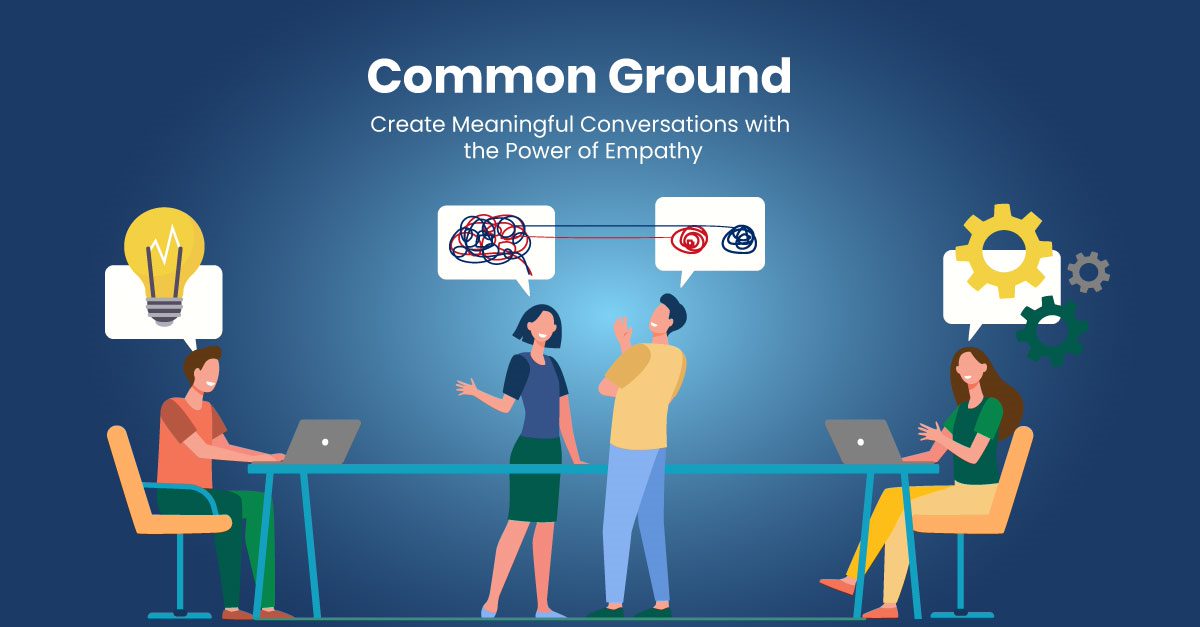Let us imagine you are in a post COVID world, addressing the employees in an ed-tech company and speaking about “how to solve the problems of inadequate network infrastructure that hampers online learning during the lockdown’.
When you step onto the podium to address the audience, take a quick look around. You need to find ‘common ground’ in the space of a few fleeting seconds.
Where Do You Begin?
Apart from the core team, there are others from administration, finance and marketing.
Suppose you launched immediately into a spiel about inefficiency of local governance and the connectivity problems in various urban zones. In that case, your audience will soon be furtively checking their phones, drifting into slumber or dreaming about the buzz of a happy hour after work.
It would help if you found common ground instantly.
A Bit of Humor Always Works
You could begin with “Did you hear about the employee who gave up on his network connection one day and took a quick nap during a team meet only to find that he was online all the time?”
The auditorium will soon echo with funnier anecdotes as the audience is drawn into what has been a part of their life for two whole years. They may talk of pets attending a Zoom meeting, of babies who climb onto the laps of team members or staff members gobbling their dinner while listening to a boring lecture.
You have struck the gold of ‘common ground,’ and even when you move to the actual subject at hand, your audience will listen with rapt attention.
What is Common Ground?
Common ground can be described as “the opinions and interests shared by two parties”.
Today, it is considered “a recognized pathway of communication to enhance the quality of the interaction with your audience.
Shared opinions, beliefs, experiences and interests are examples of common ground. The idea is to “connect” with your audience as a speaker and empathize with their ideas.
Not An Easy Step
In any sphere of life, finding common ground is easier said than done.
If you are, for instance, trying to approach your team as a newcomer in the city, you need to be open to their approach to work and their unique culture.
You could begin an interaction by asking them about the best biryani in the city, the finest museums or the cheapest chai shop close to work. Then, as you engage in non-work-related conversation, you will open the way to finding common ground in future interactions.
Establishing Common Ground in a Team
Finding common ground is the primary enabler of the success of teams in any enterprise.
According to those who have studied team behavior, common ground can be found when “team members build a shared medium in their beliefs, assumptions, vocabulary and cultural practices.”
The Power of Common Ground
Building common ground begins by developing listening, understanding, trust, empathy, encouragement, and unity in diversity. These are the essential attributes that are cultivated with practice.
The benefits of building a common ground are endless. As communicators, this tool will help you interact with your listener in the most effective manner.
Within teams, common ground will ensure that there is more productivity due to a greater understanding of a company’s goals and, eventually, a shared vision.


